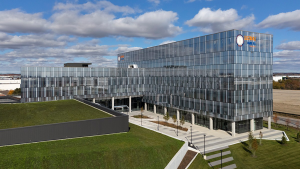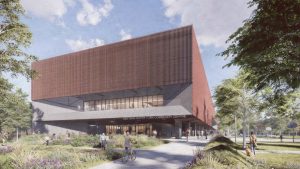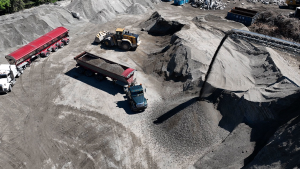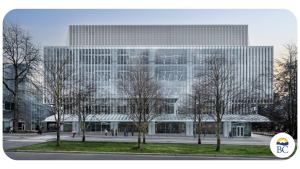TEBO Group of Industries is teaming up with the University of British Columbia (UBC) on research projects that will focus on finding solutions to drive sustainable and carbon-efficient construction and infrastructure.
The two have signed an innovative three-year, $6.6-million partnership that will bring together engineers from TEBO and researchers from the university’s Vancouver and Okanagan campuses to collaborate on made-in-Canada solutions, processes and technology for building infrastructure that supports a green economy.
They’ll be looking at building approaches that could reduce the carbon footprint of infrastructure and buildings and improve resilience to climate change and natural disasters as well as how to turn waste materials from decommissioned steel structures into feedstocks for additive manufacturing applications.
“There are about five or six different researchers from UBC that have started developing proposals and we are just looking at proposals,” explains Alan Khara, managing director at TEBO Group. “There’s a lot of back and forth that is happening from our side to the UBC side on finding more information and eventually these proposals will develop into projects.”
TEBO is a leading sustainable industrial developer with projects across Canada and around the world. The company specializes in industrial and commercial construction projects and has led some of the largest infrastructure projects in the sectors of green energy, civil infrastructure, and commercial and residential construction.
Khara says the company was looking to partner with academia because researchers in that sector are trying to develop solutions, however, it often takes decades before their findings are adopted by the industry.
He says a partnership with UBC is ideal because researchers there are already looking at novel solutions. TEBO Group will be able to speed-up adoption of new solutions by reaching out to industry partners.
“What we discovered is that whatever is being invented, any patent, any discoveries that happen in universities, it takes about 30 to 50 years for those discoveries to become normalized and used in industries. There is a time period and there is a huge gap.
“Because of what is happening globally, we can not wait for that time period of 30 to 50 years for these technologies. That is when we thought we need to partner with academia so that we can actually reduce that gap and bring the solutions earlier so that whole energy transition that is happening on the global scale can be moved along quicker.”
Initial research collaborations will focus on advancing technologies and building approaches that reduce the carbon footprint and improve resilience to climate change and natural disasters.
TEBO and UBC will also dive more deeply into how to optimize waste-to-energy processing performance through the development of engineered materials and systems design to accelerate the production of renewable fuels.
University researchers and the company will also explore the potential to develop circular supply chains.
“This collaboration with TEBO further enhances the university’s commitments to sustainability,” Dr. Gail Murphy, UBC vice-president research and innovation, said in a statement prepared for Journal of Commerce. “It enables UBC researchers across multiple disciplines to work closely with an industry partner to address pressing global challenges by focusing on both academic research exploration and viable industry applications.
“It gives our next generation of researchers and engineers opportunities to develop approaches and technologies related to sustainable development and the circular economy with potential local and global impact.”
One project already being supported by TEBO is led by structural engineer Dr. Lisa Tobber, an assistant professor in the School of Engineering in UBC’s faculty of applied science. She is leading a research group that is advancing knowledge of how to design and construct disaster-resilient buildings. She is particularly focused on concrete — a material of choice in highrise buildings for its durability and versatility.
Her research is also looking at ways to reduce the environmental impact of concrete construction while creating more resilient structures through the seismic design of precast buildings, using hybrid systems like wood framing and reinforced concrete core walls, integrating new and more sustainable kinds of concrete materials, and adopting earthquake-resilient structural systems and technologies.
Khara says technology that isolates the base of a building in a seismic event as well as outrigger systems that dissipate the effect of an earthquake on a building are possibilities that need further study.
“Interestingly these systems, in some shape or form, are available in New Zealand or Japan but they are not in use in Canada, and there is no manufacturer of those systems as well. There is no one manufacturing those kind of systems to Canadian standards, so we are very interested in developing these systems.”
TEBO is already in the process of developing a plant on the outskirts of Vancouver that will take in green household waste and introduce bacteria that converts it into natural gas that can be refined and fed into the grid.
“It’s like killing two birds with one stone,” says Khara. “One, we will take care of the waste. Secondly, there will be an extra source of energy for the city.”











Recent Comments